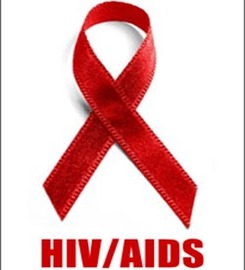Introduction

HIV/AIDS is a serious concern worldwide not only because of the debilitating and secondary effects it causes, but deaths that rob a society of healthy and productive individuals. The world knows much more now than before, and there have been actions to improve information dissemination, education campaigns, and the use of antiretrovirals therapy among those infected. Meanwhile, ongoing research is still carried out by scientists and researchers to find better and effective drugs to contain the virus, and hopefully cure the disease.
History

Information campaigns on the prevalence of the disease intensified as a result of the high incidence of HIV/AIDS worldwide. Various initiatives began and continue to this day. These were spearheaded by both the private and public sectors in the form of AIDS education and training centers that offer resources on the disease such as transmission, prevention, and research updates on the cures and drugs.
Features
- AIDS training is significant because of its possible impact on those who are dealing with the infection. Among those at the front line are health care workers and professionals who have to handle, diagnose, evaluate, and monitor patients affected by the disease.
- Preparing these groups of people through AIDS training helps them respond effectively to the issues surrounding HIV/AIDS. In the US, AIDS training is mandatory for all licensed health care workers and is a one time requirement that must be complied. It usually takes around 2 to 7 hours covering AIDS education, transmission, and prevention.
- The topics cover differentiating between HIV and AIDS, what causes them, how they are passed from one person to another, and the signs and symptoms of the disease. Counseling is also an important aspect of AIDS training as well as measures to protect a health professional against the disease. Morality and confidentiality issues are also discussed. There may be a fee associated with taking AIDS training, although there are organizations such as the American Red Cross Society and local hospitals that provide these at no cost.
- It is also possible to take web-based courses on AIDS training offered by private bodies to meet the licensing requirement of the state for health care workers. Fees vary according to the course provider. There are also options for mail delivery of materials such as books and DVDs.
- Field health care workers are also encouraged to undergo AIDS training that involves the basics of the disease such as transmission and prevention. In other situations, there are also specific courses for workers at the grassroots level in HIV testing and counseling.
- Other groups of people which need to complete AIDS training are health care workers in the private, non-profit organizations, and public sectors. These include workers at antenatal clinics, TB centers, drug rehabilitation facilities, and sexually transmitted infections (STI) clinics.
Tips and comments
The World Health Organization (WHO) developed training materials for this type of AIDS training that outlines the need for HIV testing and counseling for all types of patient regardless of the disease. However, those who have manifestations of the secondary symptoms of the disease should be advised to undertake testing.